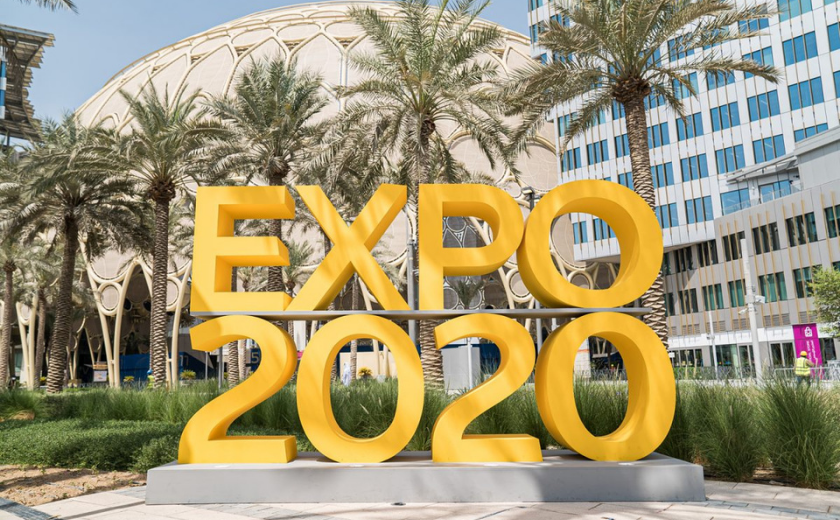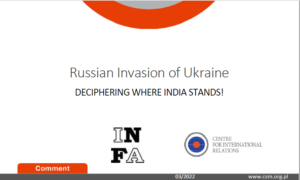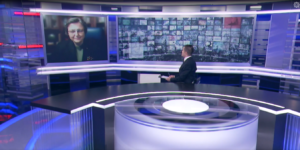
In December 1971, Emir of Abu Dhabi, Sheikh Zayed bin Sultan al-Nahyan – founding father of the UAE – brought together the ruling families of Dubai, Sharjah, Fujairah, Ajman, and Om Al-Qaïwaïn to form a political union. A federal state was created, to which the seventh emirate, Ras al-Khaimah, joined in February 1972. Within 50 years, a federation of tribal states with a population of 300,000 has developed into a nation of 10 million, which has impressed the world with its economic development, innovation and standard of living. It is also one of the most open countries in the world, where almost 90% of the inhabitants are foreigners – both highly qualified professionals and ordinary workers attracted by the dynamics of growth and professional opportunities. The UAE also won the bid to host the World Expo 2020 that for the first time in history took place in the Middle East. Millions of tourists and investors from around the globe flocked to Dubai to see the prestigious exhibition that was open to visitors from October 2021 to the end of March 2022.
Regional integration did not stop with the emergence of the UAE. The next geopolitical step in which Abu Dhabi participated was the creation of the Gulf Cooperation Council (GCC) in May 1981. It ensured closer cooperation between the UAE, Bahrain, Qatar, Saudi Arabia, Kuwait and Oman. However, the grouping faced difficulties after the outbreak of the “Arab Spring” as tensions between Qatar and Saudi Arabia worsened. Accusations towards Doha that it had allegedly provided “support” for terrorism as well as its ties with Iran led that time to a conflict between Qatar on the one hand and UAE, Saudi Arabia and Bahrain on the other. They had imposed economic measures on Qatar and severed diplomatic relations with Doha. The rapprochement started at the 41st Gulf Cooperation Council Summit in January 2021, when a “solidarity and stability” agreement was signed in al-Ula, Saudi Arabia, aimed at reconciliation and normalization of relations within the GCC.
Economic development and relations with the European Union
The dynamic growth and development of the United Arab Emirates has been possible mainly thanks to its vast natural resources and their smart management. The country sits on the seventh largest reserves of crude oil and natural gas in the world with 30% of its GDP directly based on them. However, diversification efforts and the progress have been made in shifting away from a reliance on oil. Achievements are impressive: in 1999, the Emirates opened the Burj Al Arab – the world’s first seven-star hotel. In 2001, the construction of an artificial island – Palm Jumeirah began, and in 2006, the first luxury residential units were opened. In 2005, the world’s largest shopping mall, the Mall of the Emirates, opened in Dubai with that record being broken in 2008 by the Dubai Mall. In 2009, the metro was launched in Dubai, and in 2010, the world’s tallest skyscraper – Burj Khalifa was opened. In July 2020, the Emirati “Hope” probe was launched to the orbit of Mars. This was the first interplanetary mission launched by an Arab country. In 2013, the Gulf nation won the bid to host the World Expo 2020. Due to the Covid-19 pandemic, its opening was postponed to October 2021, and it welcomed tourists until March 31, 2022. The Expo has recorded about 24 million visits.
The World Expo was held in an Arab country for the first time and as many as 192 out of 193 member states of the United Nations – including Poland – have participated in it. This was a unique opportunity for the UAE to showcase the development and transformation it has undergone over the 50 years. The World Expo is, above all, an investment in the future: this is a powerful impulse for the economy of the nation which wants to be a massive hub for business, education and innovation. After the exhibition, the infrastructure and know-how will be used in another project: District 2020 – an area for innovation and ecological initiatives.
The European Union is an official participant of Expo 2020 Dubai. The increasing regional and global importance of the UAE has significantly increased the European push for engagement in the Gulf. The EU opened its representation in Abu Dhabi in 2013, and also 26 EU Member States have their embassies there. Both sides cooperate in the field of security – in particular in the fight against terrorism – and in the economic area, especially energy, as well as climate change and environmental protection. Trade between the EU and the UAE amounts to 55 billion euros, and takes place within the broader framework of Europe’s relations with the Gulf Cooperation Council.
United Arab Emirates between the USA, Russia and China
Its economic power has helped the United Arab Emirates to build a strong position in the region, and at times it has had to rely on military means to defend its national security. This was the case when the Gulf nation was threatened by the aggressive policy of the Iranian regime and its support for the Houthi militias in Yemen. General James Mattis – the former head of the US Central Command – coined for the UAE the name: “Little Sparta“, referring to the level of professionalism and effectiveness of the country’s armed forces.
Over decades, the UAE has developed a strategic partnership with the United States which has intensified since the “Desert Storm” operation in 1991, and then strengthened by missions in Somalia, Kosovo, Afghanistan and Libya. So no wonder that Jebel Ali near Dubai is for the US Navy the most visited deep-sea port outside America. The US has worked with the UAE to protect its security and enhance its defenses using for this purpose the Al-Dhafra air base in Abu Dhabi, where some 2,000 US troops and Patriot missile defense systems are stationed. The latest example of that cooperation was intercepting Houthi missile attacks in January, 2022.
However, the US withdrawal from Afghanistan has made the Emiratis to reevaluate somehow that relationship. Criticism by the Joe Biden administration of some aspects of the military operation in Yemen had a similar effect. The UAE’s foreign policy has become more complex when its representative abstained from voting at the UN Security Council (as did China and India) on a motion for a resolution condemning Moscow’s aggression when the Russian invasion of Ukraine was launched. However, the UAE then voted at United Nations General Assembly to condemn Russia’s military assault on Ukraine and call upon Russia to withdraw its forces from the country.
Abu Dhabi, driven by geopolitical calculations, also decided to gradually normalize its relations with the president of Syria, Bashar al-Assad, supported by Moscow and Tehran. To some extent an alignment with Russia was also visible in Libya, where Abu Dhabi was reportedly supporting Marshall Haftar who fought against the UN-recognized government in Tripoli. He had also an unofficial backing from Moscow and Russian mercenaries from the so-called Wagner group fought on his side. In general, however, Emirati ties with Russia focus more on economy than security. Both countries coordinated their oil trade policy under OPEC + framework, and Russian tourists make up the third largest group in tourist traffic in the UAE, and the first one in the Ras al-Khaimah emirate.
Russia is not the only non-Western power with which the UAE is playing its geopolitical game. Abu Dhabi has been cooperating with Beijing for many years. In 2018, President Xi Jinping visited the Gulf nation, marking the first visit by a Chinese leader to the country in 29 years and sealing the UAE’s participation in the Belt and Road (BRI) initiative. That visit was all the more significant for both sides as Abu Dhabi is a kind of gateway for exports from China to the Middle East. Some 60% of China’s regional exports pass through the UAE. Already in 2015, both countries created a joint strategic investment fund worth 10 billion USD as part of the BRI.
The Covid-19 pandemic became the next step in strengthening the UAE–China partnership. During the visit of Chinese Foreign Minister Wang Yi in March 2021, cooperation in the production of Covid-19 vaccines was announced, with direct involvement by the Emirate of Ras-Khaimah. Beijing’s ties with the UAE are not restricted to economy as they include also security cooperation. In February 2022, shortly after the rocket and drone attacks on Abu Dhabi by Yemeni rebels Houthi, the UAE announced its intention to purchase 12 L15 combat and training aircraft from China. On the other hand, negotiations with the USA over 23 billion USD arms sales including up to 50 F-35 fighter aircraft were suspended in December 2021 over “sovereignty operational restrictions”. Despite those developments Washington has recently signaled that it is “still committed” to continue with the talks.
Abraham Accords
The biggest strategic shift in Abu Dhabi’s foreign and security policy, however, was the Abraham Accords of September 15, 2020, which led to the normalization of diplomatic relations and extensive cooperation between the UAE on the one side and Israel on the other. For Abu Dhabi – apart of critical tourist exchange and broad economic and technological cooperation – what matters is security cooperation with Israel. This also applies to Saudi Arabia, who, while remaining without any formal ties with Tel Aviv cooperates with the Israelis in that area. One of the reasons why they do that seems to be the regional challenge put by Tehran, which has been successfully expanding its influence from Iraq to Yemen since the US invasion of Iraq in 2003, and the subsequent civil war in Syria.
Iran’s issue
However, the UAE is also trying to neutralize the threats coming from Iran through diplomacy. In early December 2021, Sheikh Tahnoon bin Zayed Al Nahyan, National Security Advisor and brother of the de facto ruler of UAE, Crown Prince Mohammed bin Zayed al-Nahyan, visited Tehran. UAE diplomatic sources described the visit as “a continuation of the UAE’s efforts to strengthen bridges of communication and cooperation in the region that would serve the country’s national interests”.
Abu Dhabi is aware of Tehran’s continued involvement in the region and that the possible conclusion of a new nuclear deal by Iran with the US and other powers may only strengthen the geostrategic position of Tehran. All the more so now, due to increased global security challenges the UAE will try – while maintaining a strategic partnership with Washington – to simultaneously “diversify” its alliances.
Author: Dr. Bruno Surdel, expert at the Centre for International Relations Foundation (CIR)
[evc_interactive_banner type=”classic” custom_link=”url:https%3A%2F%2Fmastersandrobots.tech%2F|||”]




